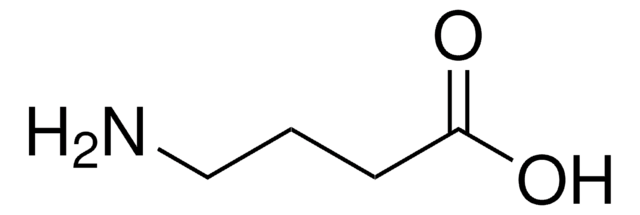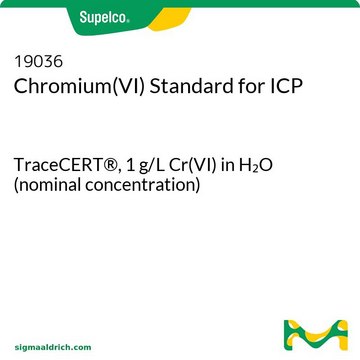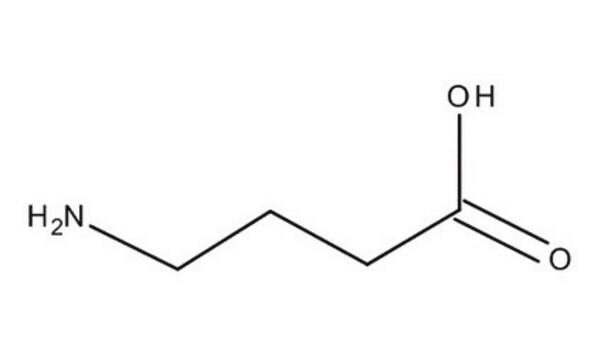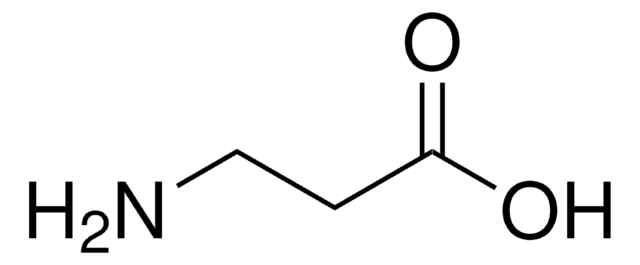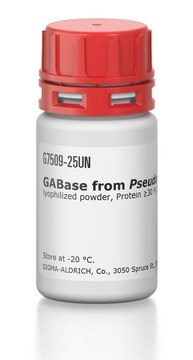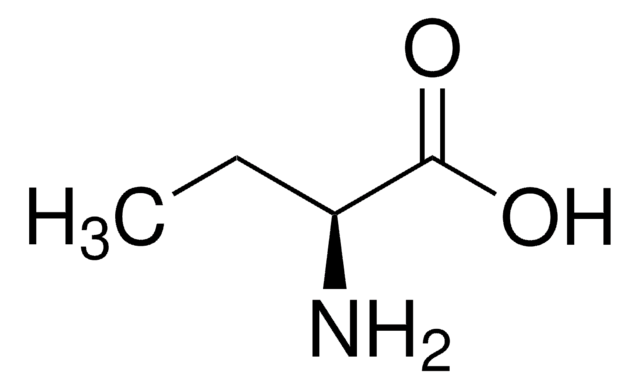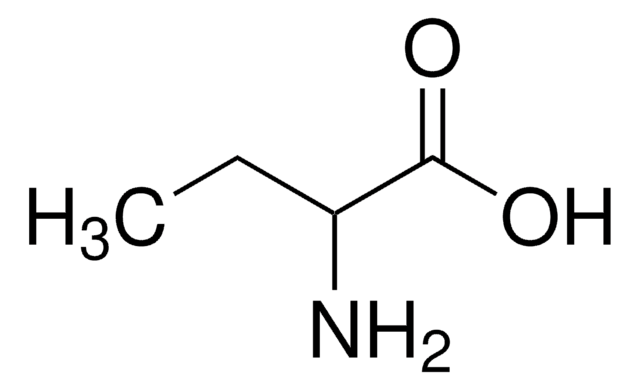A2129
γ-Aminobutyric acid
≥99% (TLC), powder or crystals, inhibitory neurotransmitter
Sinônimo(s):
GABA, Gammalon, gamma-Aminobutyric acid, 3-Carboxypropylamine, 4-Aminobutanoic acid, Piperidic acid, Piperidinic acid
About This Item
Produtos recomendados
product name
γ-Aminobutyric acid, ≥99%
Ensaio
≥99%
forma
powder or crystals
condição de armazenamento
(Tightly closed. Dry.)
cor
colorless
pf
195 °C (dec.) (lit.)
solubilidade
water: 50 mg/mL, clear, colorless
cadeia de caracteres SMILES
NCCCC(O)=O
InChI
1S/C4H9NO2/c5-3-1-2-4(6)7/h1-3,5H2,(H,6,7)
chave InChI
BTCSSZJGUNDROE-UHFFFAOYSA-N
Informações sobre genes
human ... GABBR1(2550) , GABBR2(9568) , GABRA1(2554) , GABRA2(2555) , GABRA3(2556) , GABRA4(2557) , GABRA5(2558) , GABRA6(2559) , GABRB1(2560) , GABRB2(2561) , GABRB3(2562) , SLC6A1(6529) , SLC6A11(6538) , SLC6A12(6539)
rat ... Gabbr1(81657) , Gabra1(29705) , Gabra2(29706) , Gabrb2(25451) , Gabrg2(29709) , Slc6a1(79212) , Slc6a12(50676)
Procurando produtos similares? Visita Guia de comparação de produtos
Descrição geral
Research area: Neuroscience
Aplicação
- in the preparation of GABA–BSA (bovine serum albumin)–GA (glutaraldehyde) conjugate, which is used as a control for GABA immunostaining
- in the macromolecule suppressed detection of GABA by magnetic resonance spectroscopy (MRS)
- in the intraintestinal application of GABA in order to increase intraluminal fluid secretion
Ações bioquímicas/fisiológicas
GABAergic neurons involve myorelaxation, anxiolytic treatment, sedation, and anesthetics. GABA can also influence heart rate and blood pressure.
GABA improves plasma concentration, growth hormone, and protein synthesis in the brain. It also plays a role in reducing blood pressure in humans. GABA acts as a potent hypotensive, diuretic, and antidiabetic agent. It also regulates serum lipids levels and the sensation of pain.
anticorpo
Código de classe de armazenamento
11 - Combustible Solids
Classe de risco de água (WGK)
WGK 1
Ponto de fulgor (°F)
Not applicable
Ponto de fulgor (°C)
Not applicable
Equipamento de proteção individual
dust mask type N95 (US), Eyeshields, Gloves
Certificados de análise (COA)
Busque Certificados de análise (COA) digitando o Número do Lote do produto. Os números de lote e remessa podem ser encontrados no rótulo de um produto após a palavra “Lot” ou “Batch”.
Já possui este produto?
Encontre a documentação dos produtos que você adquiriu recentemente na biblioteca de documentos.
Os clientes também visualizaram
Artigos
Professor Rivnay (Northwestern University, USA) discusses using organic mixed conductors as an alternative to efficiently bridge the ionic world of biology with contemporary microelectronics.
Nossa equipe de cientistas tem experiência em todas as áreas de pesquisa, incluindo Life Sciences, ciência de materiais, síntese química, cromatografia, química analítica e muitas outras.
Entre em contato com a assistência técnica